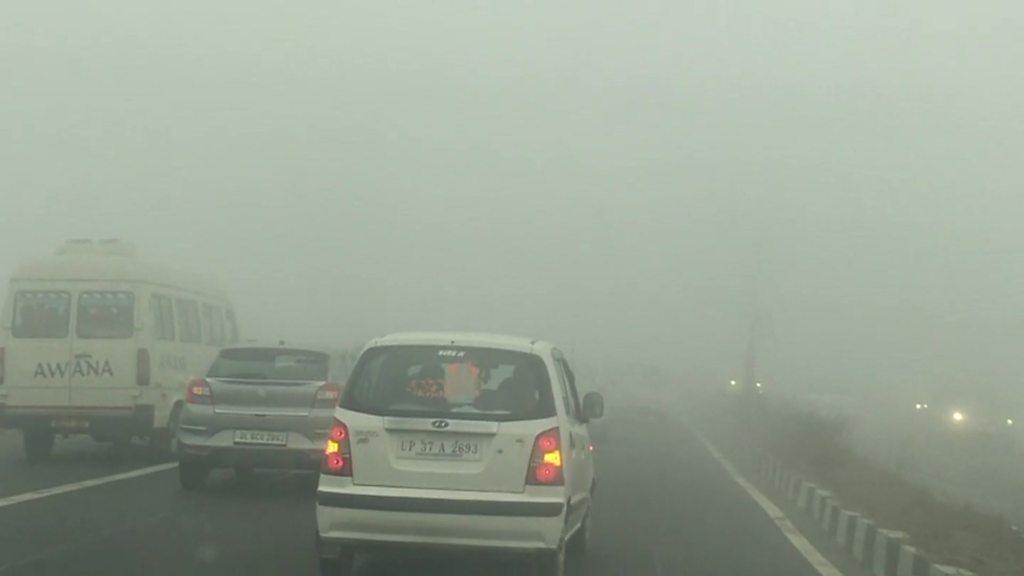India air pollution at 'unbearable levels', Delhi minister says
- Published
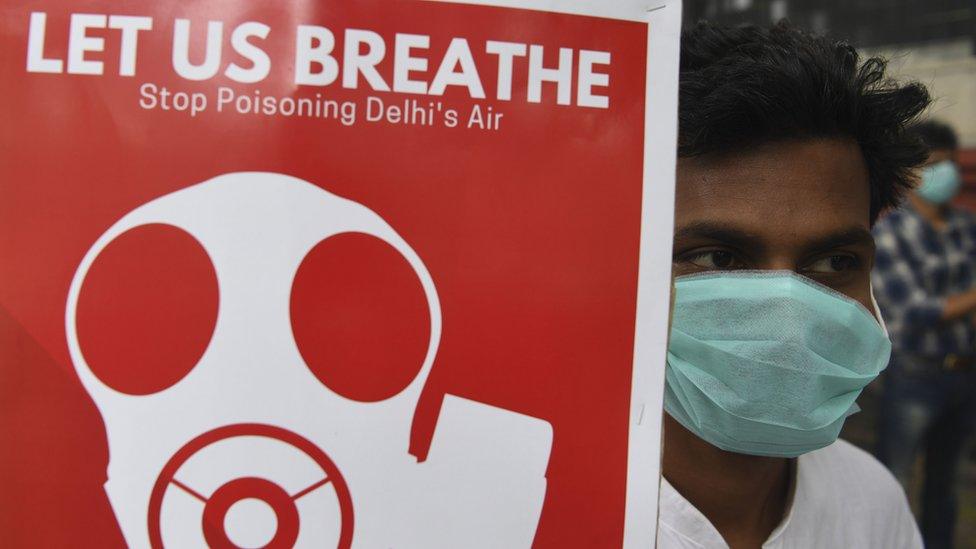
Air quality in Delhi has deteriorated into the "hazardous" category
Air pollution in the north of India has "reached unbearable levels," the capital Delhi's Chief Minister Arvind Kejriwal says.
In many areas of Delhi air quality deteriorated into the "hazardous" category, with the potential to cause respiratory illnesses.
Low visibility caused more than 30 flights to be diverted on Sunday.
Rules have now gone into effect allowing only cars with odd or even number plates to drive on given days.
The initiative is aimed at getting more vehicles off the road in an effort to curb air pollution.
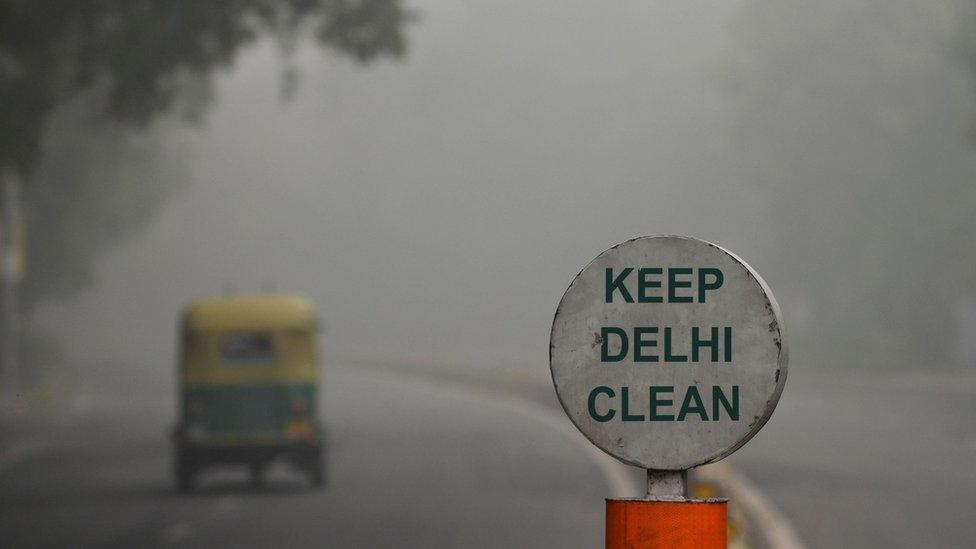
Only cars with odd or even number plates can drive on given days in a bid to reduce pollution
Schools in Delhi have been ordered to close until Tuesday, and construction has been halted.
Delhi Health Minister Satyendar Jain advised the city's residents to "avoid outdoor physical activities, especially during morning and late evening hours".
The advisory also said people should wear anti-pollution masks, avoid polluted areas and keep doors and windows closed.
What's caused the pollution?
A major factor behind the high pollution levels at this time of year is farmers in neighbouring states burning crop stubble to clear their fields.
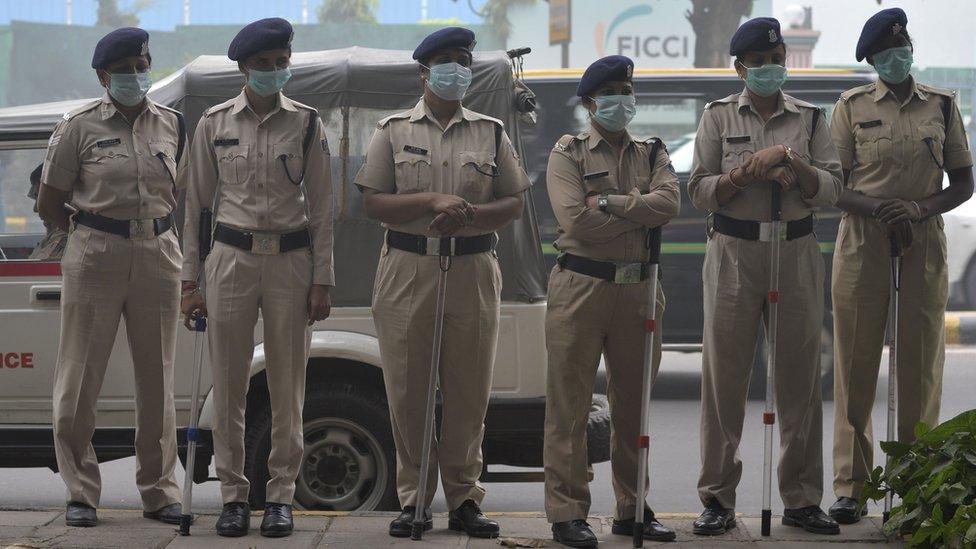
Police are wearing face masks to protect themselves from the toxic smog
This creates a lethal cocktail of particulate matter, carbon dioxide, nitrogen dioxide and sulphur dioxide - all worsened by fireworks set off during the Hindu festival Diwali a week ago.
Vehicle fumes, construction and industrial emissions have also contributed to the smog.
Indians are hoping that scattered rainfall over the coming week will wash away the pollutants but this is not due until Thursday.
How bad is the smog?
Levels of dangerous particles in the air - known as PM2.5 - are far higher than recommended and about seven times higher than in the Chinese capital Beijing.
An Indian health ministry official said the city's pollution monitors did not have enough digits to accurately record pollution levels, which he called a "disaster".
Allow X content?
This article contains content provided by X. We ask for your permission before anything is loaded, as they may be using cookies and other technologies. You may want to read X’s cookie policy, external and privacy policy, external before accepting. To view this content choose ‘accept and continue’.

Five million masks were handed out in schools on Friday as officials declared a public health emergency and Mr Kejriwal likened the city to a "gas chamber".
The World Health Organization (WHO) says a third of deaths from stroke, lung cancer and heart disease are due to air pollution.
"This is having an equivalent effect to that of smoking tobacco," the WHO says on its website.
Residents donned high-grade masks under a blanket of polluted smog

How are people reacting?
Mr Kejriwal's most recent comments are unlikely to please government officials, reports the BBC's South Asia regional editor Jill McGivering. She said Indian politicians were blaming each other for the conditions.
On Sunday young people in Delhi came out to protest and demand action.
"You can obviously see how terrible it is and it's actually scary you can't see things in front of you," said Jaivipra.
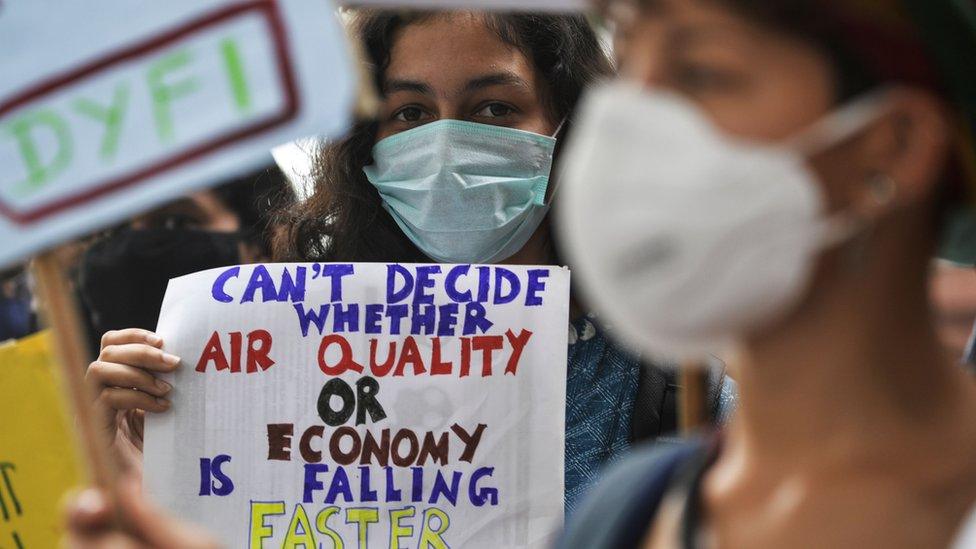
Angry protesters compared the pollution to India's sluggish economy
She said she wanted long-term and sustainable anti-pollution measures put in place.
"We are concerned about our futures and about our health but we are also fighting this on behalf of the children and the elderly who bear the biggest brunt of the problem here," she said.
Some ministers have sparked controversy on social media by suggesting light-hearted measures to stay healthy.
Harsh Vardhan, the union minister for health and family welfare, urged people to eat carrots to protect against "night blindness" and "other pollution-related harm to health".
Allow X content?
This article contains content provided by X. We ask for your permission before anything is loaded, as they may be using cookies and other technologies. You may want to read X’s cookie policy, external and privacy policy, external before accepting. To view this content choose ‘accept and continue’.

Meanwhile, Prakash Javadekar, the minister of the environment, suggested that you should "start your day with music", adding a link to a "scintillating thematic composition".
"Is that the reason you have turned deaf ears to our plight on pollution?" one Twitter user responded. "Seems you are too busy hearing music that you are not able to hear us!"
- Published23 October 2018
- Published1 November 2019
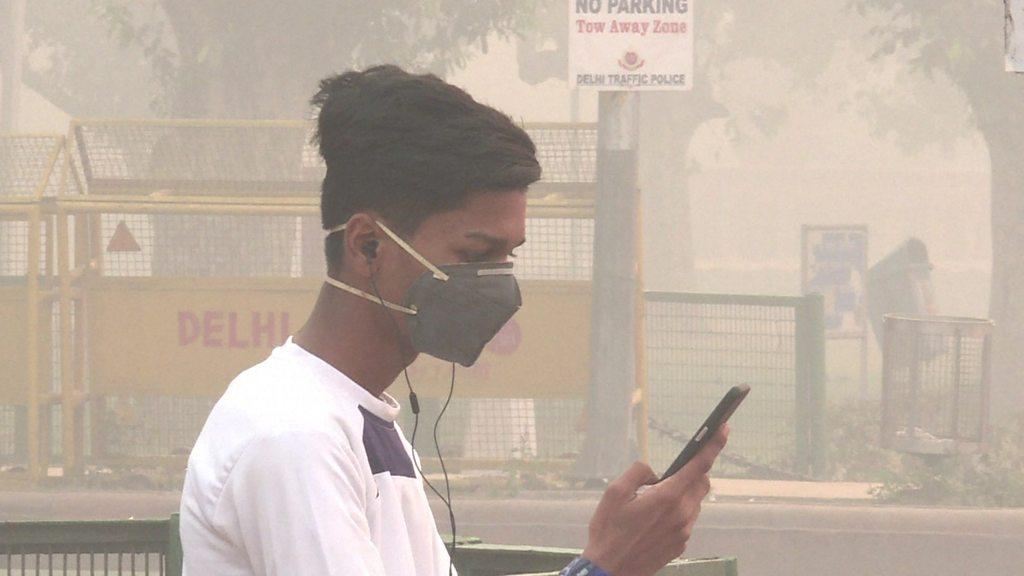
- Published8 November 2017
